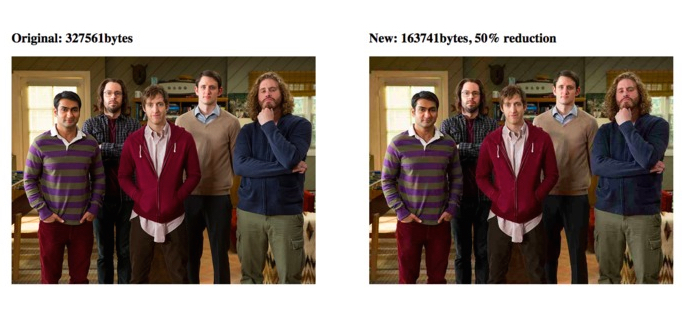It’s widely known that video streaming boomed during the pandemic, as millions of people were faced by boredom during lockdowns. But an unintended consequence of this was the growing environmental impact of millions of video streams, which meant server farms needing to draw increasing amounts of power from the grid. Indeed, there were even calls for people to cycle down to Standard Definition, as HD streaming has a greater impact. But it turns out that if you optimize the video, you can reduce the bitrate required, reducing the data and energy needed.
Oddly enough this is also the pitch of the famed satirical show, “Silicon Valley,” where fictional startup Pied Piper creates an app that contains a revolutionary data compression algorithm for video.
But this scenario may about to become fact.
iSIZE, U.K. startup that applies deep learning to optimize video streaming and delivery, has $6.3 million in a funding round led by Octopus Ventures, with participation from existing investors including TD Veen and Patrick Pichette, chairman of Twitter and ex-CFO of Google. The company has now raised a total of $8.2 million.
iSIZE’s BitSave technology optimizes video streaming quality while reducing bitrate requirements, “allowing for a significant reduction in data and energy consumption”.
This is trained to “see with the human eye” in order to make the video still look high quality, but reduce the bitrate needed. It integrates with all video encoding standards (including AVC, HEVC, and AV1) without needing changes to the streaming process. In other words, the links of Netflix, etc. would, says the company, be able to install the iSIZE solution relatively easily.
Founded by Sergio Grce and Dr. Yiannis Andreopoulos, the team combines R&D in machine learning, neural networks and video signal processing, and is a graduate of the Creative Destruction Lab Oxford 2019-2020 program.
Sergio Grce, founder and CEO of iSIZE, commented: “Today there are more people streaming more video than ever before. Our customers recognize both the commercial opportunity and their social responsibility to optimize their video delivery pipelines with our pioneering technology.”
On a call to me, he added: “The processing optimizes for human perception and tries to reverse engineer human perception of the receiver in a manner similar to psycho visual perception. So that saves bitrate and the content looks the same or better on the client device. We are doing something similar for video as what the MP3 did for music.”
Simon King, partner and deep tech investor at Octopus Ventures, said: “The technology iSIZE has created is pioneering and is already being used by some of the world’s largest companies to reduce the costs and energy used in streaming. Consumer demand for high-quality video is only going to increase as our devices are upgraded, so it’s vital that we find new ways to reduce the environmental impact.”
Competitors of iSIZE include Wave 1 and Deep Render.
Meanwhile, let’s remind ourselves of how good Pied Piper was at video compression.































Comment